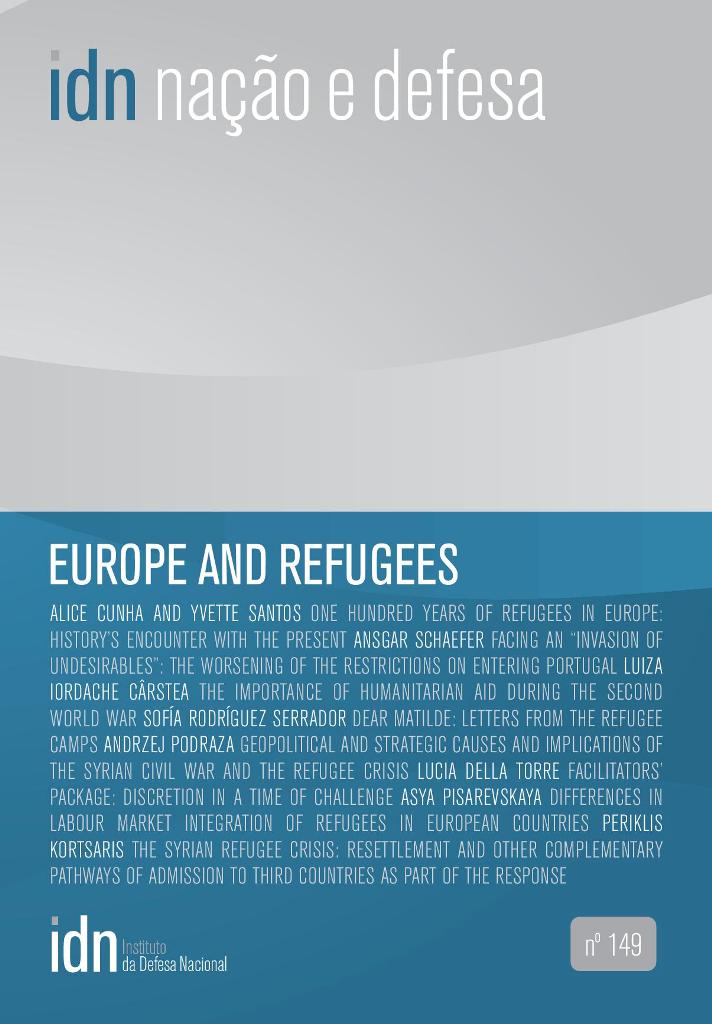The Syrian Refugee Crisis
Resettlement and Other Complementary Pathways of Admission to Third Countries as Part of the Response
Resumo
The armed conflict in Syria has caused one of the world’s largest displacement situations, with close to 6 million refugees worldwide, of whom 5.4 million are hosted by countries eighboring Syria. Europe has also witnessed large-scale arrivals of Syrians fleeing the conflict, especially, during the influx of refugees and migrants by sea into the European Union that peaked in 015.
Resettlement to a third country is one of the durable solutions to refugee displacement and, specifically, a solution targeting the most vulnerable among refugees. It is also an expression of international cooperation, solidarity and responsibility-sharing to countries and host communities struggling to cope with the impact of large refugee movements on their domestic structures. In addition to resettlement, other legal pathways to admission in third countries can also provide solutions in the short or long term. This article looks into the role and importance of resettlement and complementary pathways for Syrian refugees, as part of the response in Europe as well as into more recent developments. Particular focus is placed on key elements that could be of relevance to future policy and practice.





